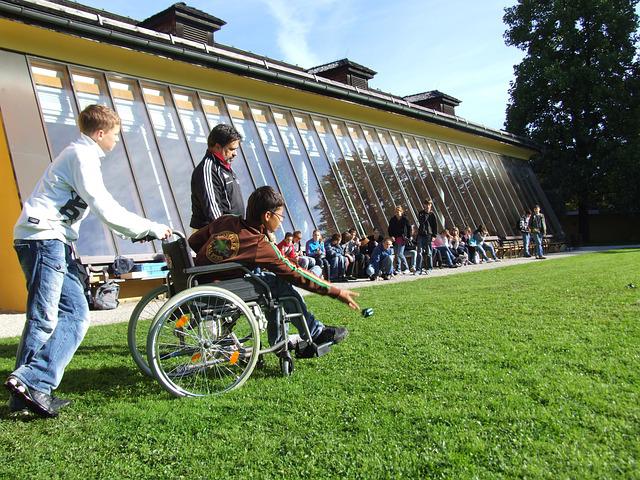Raising a child with special needs can be both challenging and rewarding. It’s important to remember that every child is unique, and what works for one may not work for another. There are, however, some general tips that can help make the journey a little easier. With patience, love, and understanding, you can help your special needs child thrive.
This is a contributed post and does not necessarily reflect the opinions of Meet The Harris Family.
Here are a few essential tips for working with a special needs child:
Get To Know Your Child

Every child is different, and that includes children with special needs. It’s essential to take the time to get to know your child and figure out what works best for them. You may need to try a few different approaches to find what works best. Here are a few things to keep in mind:
- Observe and learn your child’s cues. This will help you better understand what they are trying to communicate.
- Create a routine and stick to it as much as possible. Children with special needs often feel comfort in predictability.
- Be patient and be prepared for setbacks. There will be good days and bad days. Try to focus on the positive and celebrate the small victories.
- Please encourage your child to communicate in whatever way they are able. This could be through speech, sign language, or simple gestures.
- Provide choices whenever possible. This will help your child feel more in control and less overwhelmed.
Find A Support System
You don’t have to go through this journey alone. There are plenty of resources and support systems available. You can find support groups for parents of children with special needs, online forums, and even counseling services. Don’t be afraid to reach out for help when you need it.
You can also hire professional home health care services to help you care for your child. This can be a great way to get a break and allow your child to receive the specialized care they need. It can also give you some much-needed time to take care of yourself.
Not only this, but you can also involve your extended family and friends. Ask them to pitch in and help out whenever they can. This could be anything from watching your child for a few hours so you can run errands or simply lending an ear when you need someone to talk to.
Create a Safe and Stimulating Environment

Creating a safe and stimulating environment is important for all children, but it’s especially crucial for those with special needs. A safe environment will help your child feel secure, while a stimulating environment will help them learn and grow. Here are a few things to keep in mind:
- Make sure your home is childproofed. This includes things like covering electrical outlets, removing small objects that could be choking hazards, and using safety gates to block off stairs.
- Provide plenty of age-appropriate toys and activities. These should be both fun and educational.
- Encourage your child to explore their surroundings. This could include things like going for walks or playing in the backyard.
- Make sure your child has a quiet place to retreat when they need downtime. This could be their bedroom or a special corner of the living room.
Advocate For Your Child
It’s important to advocate for your child and ensure their needs are met. This includes working with their teachers and service providers and staying up-to-date on changes in the law that could impact your child’s education or health care.
You should also be prepared to speak up if you feel like your child is not receiving the services they need or if you’re not happy with their current service providers. Remember, you are your child’s best advocate. Also, don’t hesitate to reach out to organizations like Parent Centers for guidance and support.
Keep The Lines Of Communication Open

It’s important to keep the lines of communication open with your child. This means taking the time to talk to them about their day, their feelings, and anything else that’s on their mind. It’s also important to listen carefully and answer any questions they have.
In addition, you should also make sure to keep communication open with your child’s teachers and service providers. This way, you can share information and work together to best meet your child’s needs.
There you go! These are just a few general tips to keep in mind when working with a special needs child. Every child is different; it’s important to take the time to get to know your child and find out what works best for him or her. So don’t be afraid to experiment and ask for help when you need it.

